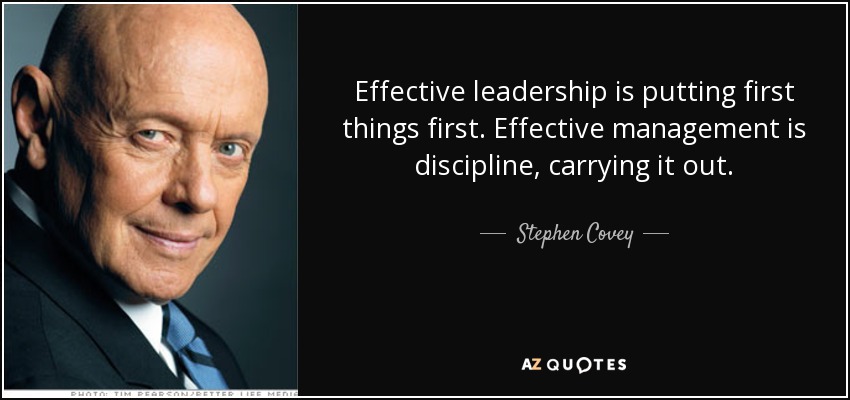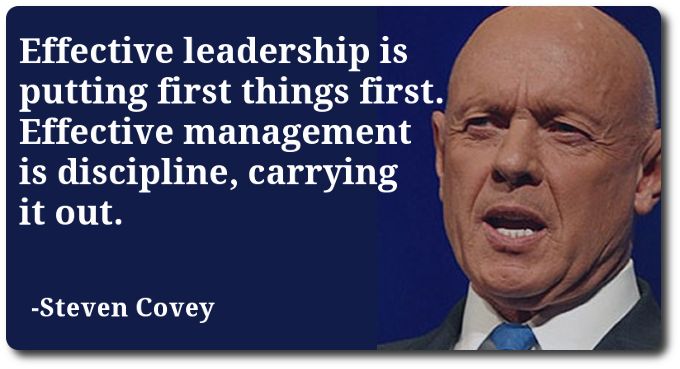

Consider that most circumstances encompass three variables - quality, speed, and cost - but you can only have two. The opposite is to leave undefined expectations and the counterfeit is to be vague about specifics. It is far better to address the real issues and lead courageously in discussions of uncomfortable topics.Ĭreate shared vision and agreement up front. When leaders use the opposite behavior by ignoring problems, they pay a huge tax when people feel they are being dishonest. This affects speed and cost by facilitating open interaction and fast achievement and also allowing you to engage the creativity, capability, and synergy of others in solving problems.

Develop formal and informal feedback systems and respond to them. Don't be afraid to make mistakes but learn from them. The opposite is entropy and deterioration, while the counterfeit is the eternal student - always learning, but never producing. Others will develop confidence in your ability to succeed in a rapidly changing environment. By establishing a track record, making the right things happen, being on time and on budget, and not making excuses for not delivering, you quickly restore lost trust on the competence side.Ĭontinuously improve by learning, growing and renewing yourself. Because it is often difficult to measure results, take time to define results upfront. This is a way to convert cynics and establish trust in a new relationship. Competence-Based Behaviors Behavior #6: Deliver Results. To exhibit a trustworthy character, give credit freely, don't badmouth people behind their backs and don't disclose others' private information. The counterfeit is to appear to share credit but then downplay others' contribution when they are away. The opposite is to take credit or not represent people fairly. Give credit to others and speak about people as though they are present. Apologize quickly, take action to make restitution when possible, and demonstrate personal humility to achieve this behavior. The opposite is to deny or justify wrongs because of ego and pride, and the counterfeit is to cover up mistakes. Make restitution instead of just apologizing. You can establish trust quickly by being open and authentic, erring on the side of disclosure and not having hidden agendas. The opposite is to obscure, and the counterfeit is an illusion of pretending things are different than they are. The counterfeit is to fake respect or concern, or, most insidious of all, to show respect and concern for only those who can do something for you.īe real and genuine and tell the truth in a way that people can verify. The opposite is commonly experienced as showing disrespect, which is a huge issue, both at work and at home. This behavior is based on the principles of respect, fairness, kindness, love, and civility. Don't manipulate people distort facts or leave false impressions. Counterfeit behaviors include withholding information, flattery, and spin. Preface your discussions by declaring your intent, so you leave no doubt about what you are thinking.

Character-Based Behaviors Behavior #1: Talk Straight.Ĭommunicate clearly so that you cannot be misunderstood. Taken to the extreme, however, these Behaviors do not build trust, and the "opposite" or "counterfeit" of each Behavior creates the biggest withdrawals.

The first five flow initially from character, the second five from competence, and the last three from an almost equal mix of character and competence. As you work on behaving in ways that build trust, one helpful way to visualize and quantify your efforts is by thinking in terms of "Trust Accounts." Remember, just like relationships, each trust account is unique all deposits and withdrawals are not created equal and what constitutes a deposit to one person may not to another.Īll 13 Behaviors require a combination of both character and competence. These 13 Behaviors are common to high-trust leaders and people throughout the world.


 0 kommentar(er)
0 kommentar(er)
